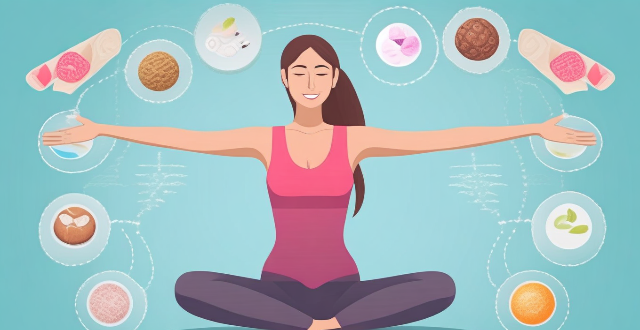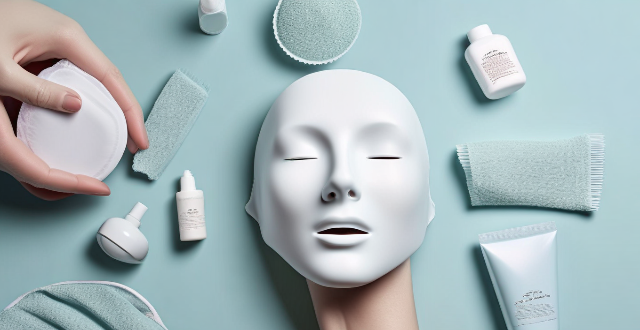Ovid Johnson

Is there a vaccine for COVID-19 ?
Vaccines for COVID-19: Several vaccines have been developed to prevent or treat COVID-19, including Pfizer's Comirnaty, Moderna's mRNA-1273, Johnson & Johnson's Janssen/Johnson & Johnson COVID-19 vaccine, and AstraZeneca's COVID-19 vaccine. These vaccines have been shown to be effective at preventing severe illness and hospitalization due to COVID-19, but may not provide complete protection against infection or transmission of the virus. Vaccination remains one of the most important tools we have to combat the COVID-19 pandemic.

How effective is the COVID-19 vaccine ?
The effectiveness of the COVID-19 vaccine varies depending on the type of vaccine and the population being vaccinated. mRNA vaccines have an efficacy rate of around 95% against hospitalization and death due to COVID-19, while adenovirus vector vaccines have an efficacy rate of around 66% and inactivated virus vaccines have an efficacy rate of around 70%. Older adults and people with underlying health conditions may require additional doses or booster shots to achieve optimal protection against severe cases of COVID-19. Populations with higher rates of transmission may also require additional doses or booster shots to achieve optimal protection against COVID-19.

What are the side effects of the COVID-19 vaccine ?
The COVID-19 vaccine has been a topic of great interest and concern in recent months. While many people have received the vaccine with minimal side effects, others have reported experiencing more severe reactions. The most common side effects reported after receiving the COVID-19 vaccine include pain, redness, or swelling at the injection site, fatigue, fever, headache, muscle pain, nausea, rash, chills, dizziness, and joint pain. However, there have also been reports of serious side effects associated with the COVID-19 vaccine, including blood clots, angioedema, myocarditis, and Guillain-Barré Syndrome. It is important to note that these cases are extremely rare and far outweighed by the benefits of receiving the vaccine.

What are some examples of successful corporate social responsibility programs ?
Successful Corporate Social Responsibility (CSR) programs benefit society and the environment, enhancing a company's reputation. Examples include Starbucks supporting coffee farmers, Coca-Cola providing clean water in Africa, Unilever reducing carbon emissions, Microsoft using AI for environmental solutions, Walmart reducing food waste, Google powering operations with renewable energy, Patagonia donating to environmental causes, and Johnson & Johnson raising funds through social media engagement. These programs not only make a positive impact but also strengthen relationships with stakeholders.

What are the latest updates on popular celebrities ?
Taylor Swift's tenth album "Midnights" topped the charts, and she announced her "The Eras Tour." Harry Styles made his film debut in "Dunkirk" and starred in "Don't Worry Darling." Beyoncé released "Renaissance" and performed at Coachella. Kim Kardashian expanded her business empire and advocated for criminal justice reform. Dwayne Johnson starred in "Red Notice," returned to WWE, and founded a philanthropic foundation.

What are some examples of successful women athletes breaking gender stereotypes in sports ?
Throughout history, women have faced numerous challenges and stereotypes in the world of sports. However, many successful female athletes have shattered these stereotypes and paved the way for future generations of female athletes. Here are some examples: 1. Serena Williams - Tennis 2. Simone Biles - Gymnastics 3. Ronda Rousey - Mixed Martial Arts (MMA) 4. Mia Hamm - Soccer 5. Katarina Johnson-Thompson - Heptathlon

Who are the most followed stars on social media right now ?
The most followed stars on social media right now are Cristiano Ronaldo, Kylie Jenner, Dwayne "The Rock" Johnson, Selena Gomez, and Kim Kardashian West. They have massive followings on Instagram and Twitter, using these platforms to connect with fans and promote their work.

What are the favorite exercises of popular celebrities ?
Celebrities have different preferences when it comes to exercise, but they all share a common goal of staying fit and healthy. Some popular exercises among them include yoga, Pilates, cardiovascular exercises, and weight training. Yoga is favored by Jennifer Aniston, Gwyneth Paltrow, and Madonna for its benefits on flexibility, strength, and balance. Pilates is preferred by Kim Kardashian, Vanessa Hudgens, and Kate Hudson for strengthening the core muscles and improving posture. Cardiovascular exercises like running, cycling, and swimming are enjoyed by Taylor Swift, Emma Stone, and Ryan Reynolds for burning calories and improving cardiovascular health. Weight training is popular among Dwayne "The Rock" Johnson, Chris Hemsworth, and Gal Gadot for building muscle mass and increasing strength. Overall, celebrities incorporate these activities into their daily routines to maintain their impeccable physique and overall well-being.

Can you share some workout tips from famous celebrities ?
Here are some workout tips from famous celebrities: Dwayne "The Rock" Johnson emphasizes compound exercises and cardio. Serena Williams suggests mixing up your routine and staying active outside the gym. Jennifer Lopez incorporates dance into her workout and prioritizes recovery. Chris Hemsworth lifts heavy weights and incorporates HIIT. Find a workout routine that works for you and your individual goals and needs.

Are there any celebrities who have publicly spoken about the importance of having true friends in the entertainment industry ?
The text discusses the importance of having true friends in the entertainment industry, as highlighted by various celebrities. These include Taylor Swift, Amy Schumer, Justin Timberlake, Oprah Winfrey, Kristen Bell, Dwayne Johnson (The Rock), Lady Gaga, Emma Stone, Chris Pratt, and Selena Gomez. They have all spoken about the value of genuine connections and supportive relationships in maintaining their well-being and happiness amidst the challenges and unpredictability of the entertainment industry.

What is the daily workout routine of a famous sports star or celebrity ?
The article discusses the importance of a consistent workout routine for famous sports stars and celebrities, highlighting its benefits in maintaining physical fitness, preventing injuries, and promoting mental health. It then provides examples of daily workout routines of notable figures like LeBron James, Serena Williams, Dwayne "The Rock" Johnson, and Jennifer Lopez, showcasing their diverse approaches to fitness that include strength training, cardiovascular exercises, agility drills, flexibility training, and mobility work. Overall, the article underscores the significance of a well-rounded fitness regimen in achieving and maintaining success in sports and entertainment industries.

What are some examples of successful celebrity personal brands ?
Celebrity personal brands are a powerful tool in the entertainment industry. They allow celebrities to establish themselves as more than just an actor, singer, or athlete. Instead, they become a brand that represents their unique personality, values, and interests. Here are some examples of successful celebrity personal brands: - Oprah Winfrey: known for her philanthropic efforts, media empire, and inspirational speaking. - Kim Kardashian: rose to fame on reality TV, launched multiple successful businesses, and is a social media influencer. - Dwayne "The Rock" Johnson: began as a professional wrestler, transitioned into acting, and is known for his dedication to fitness. - Beyoncé: Grammy-winning musician, fashion icon, and activist for social justice issues. - Elon Musk: founder of several successful companies, innovator, and active on social media despite being a busy CEO.

What philanthropic activities have celebrities been involved in recently ?
The text discusses the philanthropic activities of celebrities, highlighting various ways they contribute to charitable causes and organizations. It mentions examples of celebrities donating large sums of money to charities focusing on issues such as poverty, education, healthcare, and environmental conservation. It also notes how celebrities participate in fundraising events to raise awareness and funds for specific causes, support environmental initiatives, promote social justice issues, and start their own charitable foundations.

How does social distancing help prevent the spread of COVID-19 ?
Social distancing is a crucial measure in preventing the spread of COVID-19 by reducing contact with infected individuals, slowing down the virus's spread, decreasing case numbers, and flattening the curve.

What are some examples of successful celebrity social media campaigns ?
Social media has become a powerful tool for celebrities to connect with their fans and promote their work. Successful celebrity social media campaigns include Beyoncé's Lemonade album release, Dwayne "The Rock" Johnson's Motivational Mondays, Ellen DeGeneres' Oscar selfie, and Lady Gaga's Born This Way Foundation. These campaigns have used exclusivity, visual content, personal touch, consistency, inspirational content, personal branding, timing, star power, humor, purposeful content, engaging fans, and alignment with personal values to achieve success.

Can you share some workout routines followed by celebrities ?
Celebrities have different workout routines that they follow to maintain their physical fitness. Here are some examples: 1. Dwayne "The Rock" Johnson focuses on compound exercises and high-intensity interval training (HIIT) to build muscle and burn fat. He works out six days a week with a mix of strength training and cardio. 2. Jennifer Lopez follows the Tracy Anderson Method, which involves dance-inspired moves that target specific muscle groups. She also incorporates Pilates into her routine to improve flexibility and core strength. Along with her workout routine, JLo maintains a healthy diet filled with lean proteins, fruits, and vegetables. 3. Chris Hemsworth follows the Centr Fitness Program, which includes a mix of strength training, cardio, and mobility work. His workouts focus on functional movements that mimic everyday activities, making them more applicable to real life. He emphasizes the importance of rest and recovery, taking time off from the gym when needed to let his body heal. 4. Serena Williams incorporates agility drills into her routine to improve her speed and quickness on the court. She also focuses on building strength through exercises like squats, lunges, and weightlifting. In addition to physical training, Williams places a strong emphasis on mental preparation, visualizing success before each match or workout. It's important to find a workout plan that suits individual needs and goals. It's always best to consult with a fitness professional before starting any new exercise program.

What are the latest developments in vaccine research and development ?
The text discusses the latest developments in vaccine research and development, including the creation of new vaccines for COVID-19, cancer, and other infectious diseases. It also highlights the challenges and opportunities facing vaccine researchers and developers, such as ensuring accessibility and affordability of vaccines and addressing concerns about vaccine safety and efficacy. The text concludes by emphasizing the importance of continued investment in vaccine research and development to improve global health outcomes.

How much do celebrities typically get paid for endorsing a product ?
Celebrity endorsements are a common marketing strategy used by brands to promote their products or services. The amount of money that celebrities earn from endorsements can vary widely depending on several factors, including the celebrity's popularity, the type of product being endorsed, and the length of the contract. In this article, we will explore some of the key factors that determine how much celebrities typically get paid for endorsing a product.

Can asymptomatic individuals spread COVID-19 ?
Asymptomatic individuals can spread COVID-19, making preventive measures crucial.

How long does immunity last after getting vaccinated against COVID-19 ?
Vaccines work by triggering an immune response that teaches the body how to fight off a virus. COVID-19 vaccines provide strong protection against severe illness and hospitalization, but it is still possible to contract the virus after being vaccinated. Immunity wanes over time, so booster shots are recommended to maintain protection. It is important to continue following safety measures such as wearing masks and social distancing to reduce the risk of infection.

How can schools implement safe reopening plans while managing the risk of COVID-19 transmission ?
This document outlines a comprehensive plan for schools to safely reopen amid the COVID-19 pandemic. Key strategies include implementing health screenings and periodic testing, enhancing hygiene and sanitation measures, mandating mask use, improving ventilation, reducing class sizes, adjusting schedules, limiting gatherings, adopting hybrid learning models, supporting technology use, modifying curricula, engaging in community partnerships, setting clear expectations for students and parents, training staff, providing mental health resources, tracking data, establishing feedback mechanisms, being adaptable to policy changes, and preparing emergency response plans. The guide emphasizes the need for constant vigilance, flexibility, and collaboration to ensure a safe learning environment for all.

How do celebrities deal with stress and anxiety in their daily life ?
Celebrities handle stress and anxiety through exercise, meditation, yoga, healthy eating, hobbies, social support, professional help, time management, limiting social media exposure, and self-care routines.

What are the most common industries for celebrity entrepreneurship ?
Celebrity entrepreneurship is prevalent in industries such as fashion, food & beverage, entertainment, health & wellness, and technology. Famous individuals leverage their fame to launch successful businesses, including clothing lines, cosmetics brands, restaurants, production companies, fitness programs, and tech startups.

How do celebrities influence public opinion and behavior ?
Celebrities have a significant impact on public opinion and behavior through their roles as role models, trendsetters, opinion leaders, product endorsers, and charitable figures. They can inspire positive values, set trends, voice opinions on social issues, create trust in products, and raise awareness for charitable causes. However, it is important for celebrities to use their influence responsibly for the benefit of society.

What is the latest update on the NBA trade deadline ?
The NBA trade deadline has passed, resulting in severalThe NBA trade deadline has passed, resulting in several impact the league's play resulting in several notable trades that could impact the league's playoff race and future team dynamics. Key trades include the Boston Celtics acquiring Evan Fournier, the San Antonio Spurs sending LaMarcus Aldridge to the Brooklyn Nets, the Golden State Warriors acquiring Andrew Wiggins and D'Angelo Russell, and the Miami Heat acquiring Andre Iguodala. These moves have implications for both the teams involved and the league as a whole, with potential shifts in power and long-term effects on player development and team rebuilding efforts. Fan reactions to these trades have been mixed, with excitement and disappointment among different fan bases.

How has the COVID-19 pandemic impacted global health security ?
The COVID-19 pandemic has significantly impacted global health security by overwhelming healthcare systems, necessitating public health policies such as lockdowns and quarantine measures, and highlighting the importance of international cooperation. The strain on healthcare systems included increased patient loads, shortages of medical supplies, and stress on the healthcare workforce. Public health responses involved vaccination programs, testing and tracing initiatives, and economic challenges due to lockdowns. International cooperation was essential for coordinating a global response, sharing information, and addressing misinformation. The pandemic also highlighted the need for resilient global health systems, sustained investment in public health infrastructure, collaborative research, and technological advancements. Overall, the COVID-19 crisis has prompted efforts to build stronger and more cooperative global health systems prepared for future emergencies.

How effective are cloth masks compared to surgical masks in preventing the spread of COVID-19 ?
This article discusses the effectiveness of cloth masks compared to surgical masks in preventing the spread of COVID-19. Cloth masks are washable, reusable, and customizable, but they do not have the same level of filtration as surgical masks. Surgical masks are disposable, have a high filtration efficiency, and are designed for use by healthcare professionals during medical procedures. The choice between cloth masks and surgical masks depends on personal preference, availability, and specific circumstances. It is essential to follow guidelines from health organizations and authorities regarding the use of masks to help prevent the spread of COVID-19.